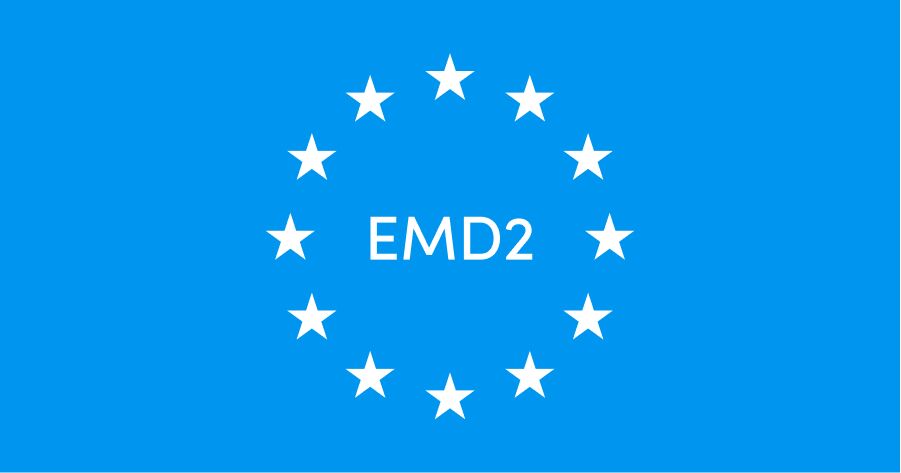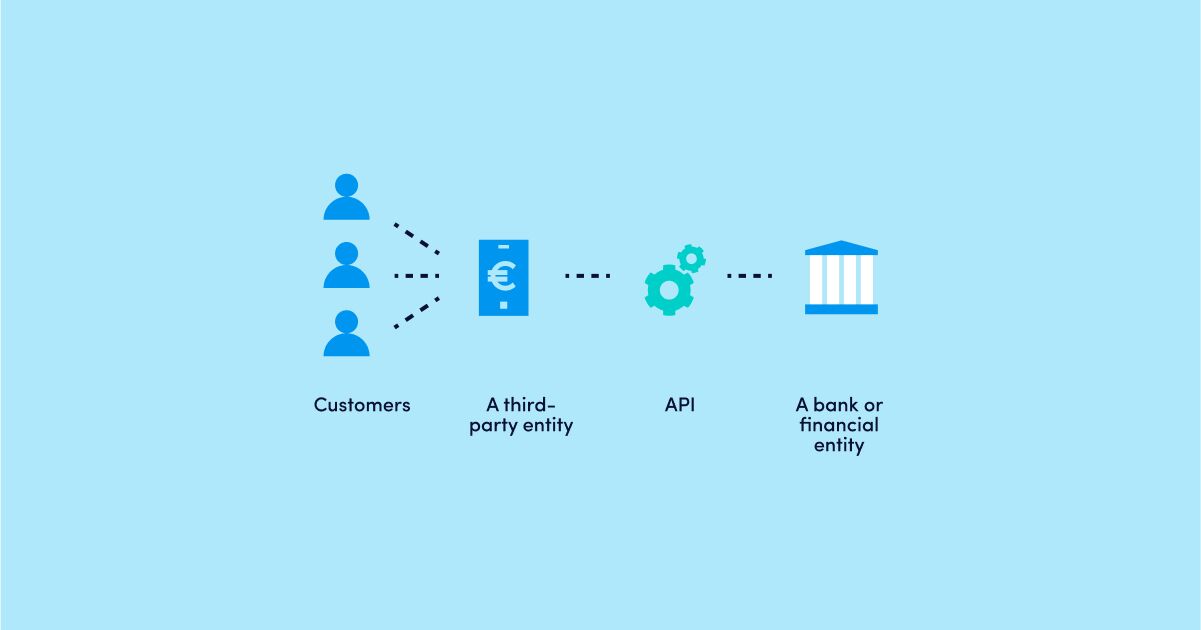The Second Electronic Money Directive (EMD2) was developed to align EU requirements and supervise electronic money institutions.
Which companies are regulated by EMD2?
The Second Electronic Money Directive (EMD2) lays out the rules for electronic money issuance and defines categories of electronic money issuers that member states in the EU shall recognise:
a) credit institutions;
b) electronic money institutions;
c) post office giro institutions which are entitled to issue electronic money under the national law;
d) the European Central Bank and national central banks when not acting in their capacity as the monetary authority or other public authorities;
e) Member states or their regional or local authorities when acting in their capacity as public authorities.
General terms under the EMD2
“Electronic money institution” stands for any legal person that has been granted authorisation to issue electronic money.
“Electronic money (e-money)” stands for an electronic store of monetary value (electronically and magnetically) on a technical device and is used to make payment transactions and accepted as a means of payments by persons other than the electronic money issuer.
“Electronic money issuer” stands for entities that are entitled to issue electronic money in line with the Second Electronic Money Directive (EMD2).
General prudential rules
- These rules lay out the requirements related to the pursuit and supervision of electronic money institutions.
- Electronic money institutions must inform the competent authorities on how they safeguard funds that have been received in exchange for electronic money issued.
- Any natural or legal person who has decided to acquire or sell (directly or indirectly) a qualifying holding of the e-money company must inform the competent authorities in advance.
- Member states allow electronic money institutions distribute and redeem electronic money through persons who act on their behalf.
- Electronic money institutions can’t issue electronic money through agents.
Initial Capital
Member states requires electronic money institutions to hold, at the time of authorisation, the initial capital of not less than EUR 350 000.
Activities of electronic money institutions
1 – In addition to issuing electronic money, electronic money institutions are entitled to engage in any of the following activities :
a) The provision of payment services listed in the PSD2 directive:
1) Services enabling cash to be placed on a payment account as well as all the operations required for operating a payment account
2) Services enabling cash withdrawals from a payment account as well as all the operations required for operating a payment account
3) Execution of payment transactions, including transfers of funds on a payment account with the user’s payment service provider or with another payment service provider:
(a) execution of direct debits, including one-off direct debits.
(b) execution of payment transactions through a payment card or a similar device.
(c) execution of credit transfers, including standing orders.
4) Execution of payment transactions where a credit line covers the funds for a payment service user:
a) execution of direct debits, including one-off direct debits.
b) execution of payment transactions through a payment card or a similar device.
c) execution of credit transfers, including standing orders.
5) Issuing of payment instruments and acquiring of payment transactions
6) Money remittance
7) Payment initiation services
8) Account information services
b) Granting credit related to payment services – execution of payment services, issuing of payment instruments and acquiring of payment transactions, payment initiation services (points 4, 5 or 7);
c) Operational and ancillary services related to issuing of electronic money or the provision of payment services referred to in point (a);
d) Operation of payment systems;
e) Business activities other than the issuance of electronic money in compliance with the applicable community and national law;
f) Credit referred to in point (b) shall not be granted from the safeguarding funds.
2 – Electronic money institutions shall not take deposits or other repayable funds from the general public if they are not credit institutions.
3 – Electronic money institutions must exchange any funds received from electronic money holders without delay. Such funds shouldn’t be a deposit or other repayable funds received from the general public if they are not credit institutions.
4 – When it comes to funds received and payment services listed in the PSD2 Directive, payment institutions must comply with the following:
- Payment institutions may hold only payment accounts used exclusively for payment transactions.
- Payment institutions are not allowed to take any deposits or other repayable funds. Any funds received by payment institutions from payment service users for payment services can’t be a deposit or other repayable funds.
Electronic Money Directive 2 – link to the documentation.
About Advapay
Advapay is a technology company providing the Digital Core Banking platform to empower fintech clients or digital banks to start their businesses and accelerate digital transformation. The platform delivers all essential functionalities, a front-to-back system and a set of tools to customise and bring new integrations. With Advapay, potential and existing customers can connect either to the cloud-based SaaS or on-premise software. Besides the technical infrastructure, the company provides business advisory and fintech licensing services. Interested to learn more, please drop us a message








